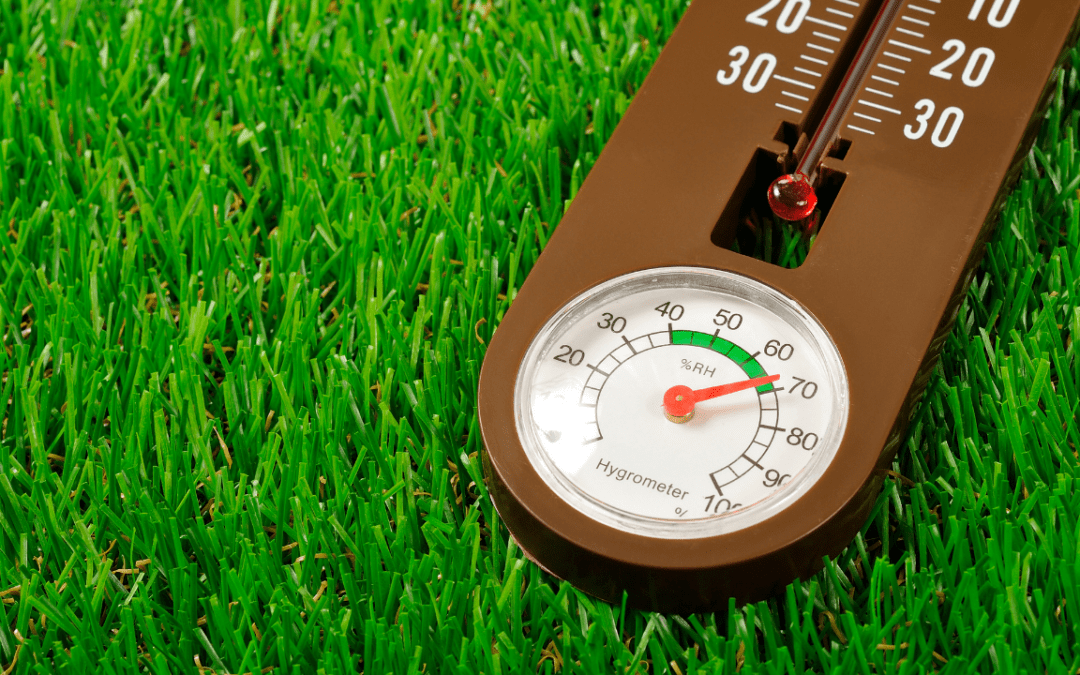If you’ve stepped outside at all the past couple of days you’ve probably felt the humidity in the air. We know humidity makes it feel hotter outside, but can humidity affect the performance of your air conditioning system?
To simply answer the question, yes. Elevated humidity outdoors and in your residential home or commercial business can negatively affect the cooling potential of your HVAC system. Many HVAC experts recommend the humidity level in your building remain below 60% to maintain a level of comfort. However, this can be difficult to maintain as the weather changes.
We’ll discuss how high humidity can cause problems for your heating and cooling system. We’ll also discuss possible solutions that can reduce strain on your ac unit and help lower your energy bills.
Humidity & Central Air – How Do They Influence Each Other?
Your air conditioning system works to remove hot air from your home and bring in fresh, cool air. The AC also reduces the amount of excess humidity there is in the air circulating in your home. To do this, the air conditioning unit’s HVAC Coil works to reduce the humidity levels by turning the water vapor into liquid and draining the excess after. With proper unit sizing and installation, the AC Unit provides effective dehumidification. This in turn helps keep your home cool and comfortable.
Certain identifiers of improper dehumidification, however, might include:
- The windows in your home or business are Foggy.
- The air in your home or business feels Moist.
- There is a damp or musty smell in parts of your home or business.
If you notice any of these indicators, it’s important to contact your local HVAC Expert to help address these concerns. Besides improper regulation of humidity, this also can indicate increases in energy usage and excess strain on the system.
Possible Causes of High Humidity with Air Conditioning Units
You Might Have an Oversized System
An oversized AC system is just an a/c system that is too big for your home. We sometimes think the bigger the better, but that isn’t the case when it comes to an HVAC system. An improperly sized ac system does a poor job of controlling both temperature and humidity. This is a result of the unit’s compressor continuously turning on and off. The system never runs long enough to remove the moisture in the air. Because a repair will not fix an oversized system, the only solution is to downgrade to a smaller capacity AC system.
The A/C System Might Be a Single Speed Unit
An air conditioner that is only able to run at one speed can often have the same problems as a unit that’s too large for your home when it comes to HVAC humidity control. When an air conditioning system can only run at one speed, it turns on and runs at maximum potential until reaching the desired temperature. Once it has reached the set temperature, the unit turns off until the temperature drops or rises. At this point, it repeats the process to reach the desired temperature. Doing so, like with an oversized system, means the unit never runs long enough to remove humidity. An investment into a variable-speed HVAC system can address this concern.
There Might Be Negative Air Pressure
Negative air pressure results when there is too much air being vented from your ducts. Most times this is due to a poorly designed ventilation system. If this is the case, the air tries to balance itself by bringing in more outside air in any way possible. If the humidity outside is in the 70s or above, the muggy air is essentially being drawn into your home. To address the air pressure, the existing ventilation system needs to be updated or a new ventilation system might need to be designed.
You Might Be Leaving the Fan On
Running the fan might feel as though you’re getting some cooling benefit, but it might be making humidity conditions worse. The fan could send the moisture the AC worked hard to remove back into the air before it’s had a chance to drain.
The HVAC System Might Be Old
Over time, your air conditioner ages, parts wear, and it might not run as efficiently as it used to. The condition of your air conditioner can deteriorate faster without proper maintenance. The older the unit is, the more inconsistent the temperatures and cooling capabilities of your system. If this is an issue, chances are the HVAC will have poor humidity control as well. If repairs are not possible, a full system replacement may need to occur.
How To Prevent Humidity Issues?
If you notice that your home has any of the indicators of improper dehumidification – including moist air, musty air, or foggy windows – Contact Freedom Heating & Air!
One way to address high humidity and make sure that your air conditioning unit is properly removing excess humidity is to schedule an air conditioning maintenance tune-up. A maintenance tune-up can determine if repairs or if a replacement is needed. It is important to evaluate the condition of your central air conditioning unit before it fails to keep up with the dog days of summer.
Do you want to reduce the humidity inside your home or business? Contact Freedom Heating & Air at (214) 306-8456 for fast and friendly service.


